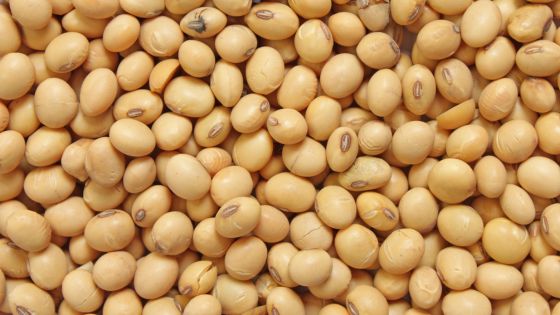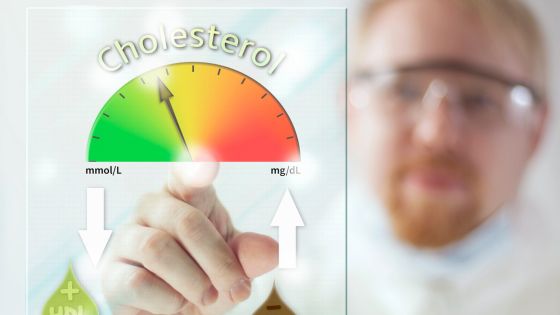Soybeans are widely regarded as a superfood due to their sheer abundance of essential nutrients. These legumes are especially prized for their high protein quantity per serving amounts.
Studies have shown that a regular soy diet might keep heart and cardiovascular diseases at bay. This article looks at the soy benefits for heart health.
Soy May Prevent Heart Disease
Soybeans are incredibly high in protein. According to the United States Department of Agriculture (USDA), there are up to 36 grams of protein in a 100-gram serving of raw soya beans.
That’s the highest protein quantity of any food, even higher than popular animal protein sources like beef and poultry. Even better is that soybeans contain decent amounts of all nine essential amino acids.
Soyabeans’ high protein abundance explains the growing demand for these legumes. It’s also the reason behind the increased awareness of sustainable soy production methods as a preventive measure against a possible future shortage of these nutritious beans.
Protein serves as the building block for forming muscles and tissues in the body. Those include the muscles and tissues that make up the heart. Protein deficiency is a leading cause of muscle wastage. And without stronger muscles, the heart’s ability to pump blood to various body parts would be severely impaired.
There’s also a direct relationship between protein and heart disease. According to the Heart and Stroke Foundation of Canada, protein-rich diets like soybeans may help prevent heart disease.
Soy May Lower Blood Pressure
Fiber is involved in numerous physiological and metabolic processes in the body. The nutrient is probably most famous for its stool-bulking effects, which may consequently help relieve digestive disorders like constipation and diarrhea.
Fiber also works with protein to induce feelings of satiation for longer between meals. That makes the two nutrients essential for weight loss.
Research further suggests that the soluble fiber in soy may reduce blood pressure and cardiovascular inflammation. Soluble fiber is a type of fiber that readily dissolves in the stomach for quick absorption. It’s different from the insoluble type, which is mainly associated with stool-bulking effects.
Note that hypertension and inflammation are among the leading causes of heart disease. By keeping these risk factors in check, fiber-rich foods like soy play a direct role in improving heart health.
Soy May Reduce LDL Cholesterol
Low-density lipoprotein (LDL), also known as “bad” cholesterol, is linked to increased risks of heart disease. Unfortunately, LDL makes up much of the body’s cholesterol levels.
One way to mitigate the adverse effects of LDL levels is by upping your intake of linoleic acid. And that’s another area where soybeans come in quite handy.
Soy comprises 18% fat by dry weight. Much of this is polyunsaturated and monounsaturated fatty acids, with saturated fats taking up a small portion.
Soybeans are exceptionally high in linoleic acid – fatty acids that counteract LDL. Linoleic acid accounts for up to 50% of the total fat content in soy. That explains why soya beans are remarkably effective at combating LDL and improving your heart’s performance.
Like other fatty acids, linoleic acid lowers cholesterol levels by enhancing PPAR activity. The acid also induces the LXRα protein regulatory pathways, subsequently triggering the elimination of excess cholesterol from the bloodstream.
Soy May Prevent Cardiovascular Disease
The phrases “heart disease” and “cardiovascular disease” are often used interchangeably. However, they’re not the same.
Heart disease is a term for all medical conditions that affect the heart’s performance and structure, while cardiovascular diseases (CVDs) are conditions of the heart and blood vessels.
It turns out that soybeans may guard against both heart disease and cardiovascular diseases. That’s due to their abundance of isoflavones.
Isoflavones are plant-based compounds found almost exclusively in legumes and noted for their numerous health benefits.
Studies have shown that regular intake of isoflavones may lower the risks of cardiovascular disease. The compounds inhibit nearly all the risk factors of CVDs, including lowering blood pressure and LDL cholesterol.
Soy May Boost Blood Calcium Levels
Calcium is essential for healthy bones and teeth. Degenerative bone diseases are primarily due to calcium deficiencies. Calcium may also provide immense cardiovascular benefits. The mineral can guard against hypertension, stroke, and vascular disease. It also works synergistically with vitamin D to protect against coronary heart disease.
Soybeans are a natural source of calcium.
One cup (175 grams) of cooked soybeans boasts 18.5% of the recommended daily intake (RDI) of this critical nutrient. The mineral is even higher in edamame (immature soybeans), with the same serving amount providing up to 27.6% of the RDI.
Considering calcium’s many cardiovascular benefits, it’s evident why foods high in this mineral can be helpful for your heart’s overall health.
Final Word
Soybeans are high in nutrients required for optimal cardiovascular performance and overall body functions. The legumes come in multiple formulations, making them incredibly easy to incorporate into your diet. Popular soy-based products include soymilk, soy flour, soy sauce, tofu, and edamame.
Remember not to replace other essential foods completely with soy; excess soy consumption can cause digestive issues and thyroid problems. The idea is to consume a balanced diet all the time but with a particular focus on soy-based products.





















